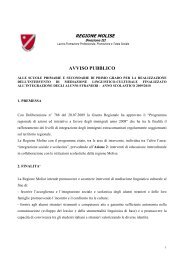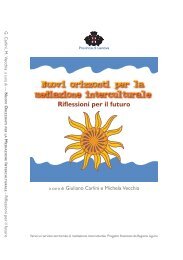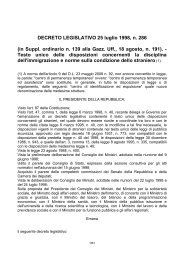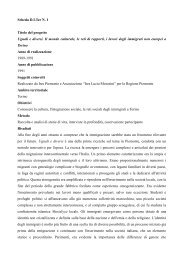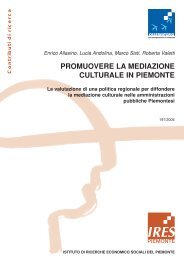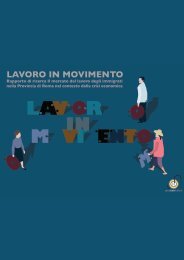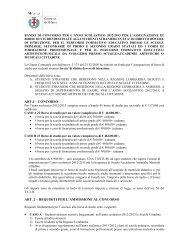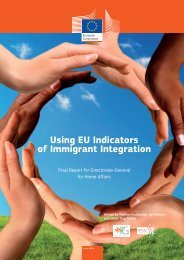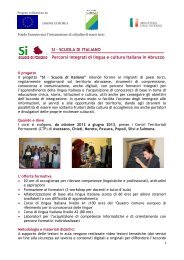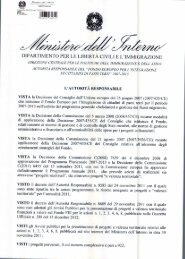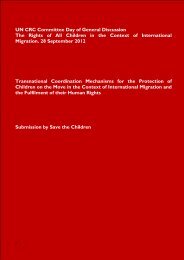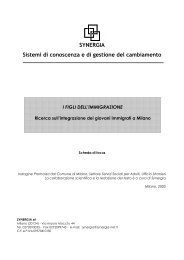Combating anti-Roma stereotypes and prejudices through media
Combating anti-Roma stereotypes and prejudices through media
Combating anti-Roma stereotypes and prejudices through media
- No tags were found...
Create successful ePaper yourself
Turn your PDF publications into a flip-book with our unique Google optimized e-Paper software.
10 Simple Rules to tell <strong>Roma</strong> StoriesFinally, a set of 10 basic, simple, yet fundamental, rules for <strong>media</strong> professionals to be used when reportingon <strong>Roma</strong> communities. Inaccurate information, deriving from a lack of knowledge, can only reinforce<strong>prejudices</strong> <strong>and</strong> <strong>stereotypes</strong>. This list could serve <strong>media</strong> as a practical toolkit to foster a more responsibleapproach to information.Media should engage themselves to further develop a knowledge-based <strong>and</strong> <strong>anti</strong>-discriminatory way totackle <strong>and</strong> cover <strong>Roma</strong> issues in European <strong>media</strong> <strong>and</strong> to respond to the information needs of an increasingdiverse population, thus contributing to social cohesion in European societies.• Abide by codes of conduct <strong>and</strong> international st<strong>and</strong>ards: maintain professionalism• Avoid generalization, simplification: stories are personal, not ethnic related• Ban <strong>stereotypes</strong> <strong>and</strong> <strong>prejudices</strong>: they are not evidence-based• Abstain from sensationalism: choose right words <strong>and</strong> images, be objective• Report <strong>and</strong> condemn discriminatory articles: enhance credibility of <strong>media</strong>• Inform about positive stories: do not squeeze <strong>Roma</strong> images only on exclusion <strong>and</strong> illegality• Make <strong>media</strong> monitoring a long-term regular process: a constant training exercise• Consider the consequences of inaccurate information: it fosters discrimination• Let the voice of <strong>Roma</strong> be heard: involve <strong>Roma</strong> as sources, write their stories with them• Build stronger ties with <strong>Roma</strong> communities <strong>and</strong> civil society: participation is a crucial factorConclusionMany journalists’ unions <strong>and</strong> <strong>media</strong> employers are committed to opposing the use of <strong>media</strong> to promotediscrimination, The Charter of Rome <strong>and</strong> similar other declarations have been made by European employer<strong>and</strong> journalists’ groups.Ethical codes <strong>and</strong> guidelines need to be revived <strong>and</strong> should be used as the basis for discussions withindividual editors <strong>and</strong> journalists whenever <strong>media</strong> make mistakes. Seminars <strong>and</strong> training should be organisedon issues such as the use of language, the correct terminology when referring to <strong>Roma</strong>, the involvement ofother sources (first of all among <strong>Roma</strong>), <strong>and</strong> the selection of pictures.Defining alternative stories <strong>and</strong> positive angles to counter prejudice are a vital part of the mix. Involvementof <strong>Roma</strong> communities, civil society activists, expert in intercultural <strong>media</strong>tion <strong>and</strong> communication should bealso brought on board <strong>and</strong> invited to play a key role in the definition of efficient strategies.34



